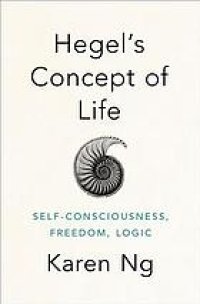"This book defends a new interpretation of Hegel's idealism as oriented by a philosophical and logical concept of life, with a focus on Hegel's Science of Logic. Beginning with the influence of Kant's Critique of Judgment, Karen Ng argues that Hegel's key philosophical contributions concerning self-consciousness, freedom, and logic, all develop around the idea of internal purposiveness, an idea that Hegel takes to be "Kant's great service to philosophy." In the first part of the book, Ng charts the development of the purposiveness theme in Kant's third Critique, and argues that the key innovation from that text is the claim that the purposiveness of nature opens up and enables the non-arbitrary operation of the power of judgment. She argues that this innovation is the key for understanding Hegel's philosophical method in the Differenzschrift (1801) and Phenomenology of Spirit (1807), a method in which the theory of self-consciousness plays a central role. With the aid of arguments from Fichte and Schelling, Hegel argues against Kant that internal purposiveness is constitutive of cognition's activity, shaping its essential relation to both self and world. In part two, Ng defends a new and detailed interpretation of Hegel's Logic, arguing that Hegel's Subjective Logic can be understood as Hegel's own version of a critique of judgment, in which life comes to be understood as opening up the possibility of intelligibility as such. She argues that Hegel's theory of judgment is modelled on reflective, teleological judgments, in which something's species or kind provides the objective context for predication. The Subjective Logic culminates in the argument that life is a primitive or original activity of judgment, one that is the necessary presupposition for the actualization of self-conscious cognition. Ng demonstrates that absolute method is best interpreted as the ongoing dialectic between life and self-conscious cognition, providing a new way of understanding Hegel's philosophical system"-- Read more...
